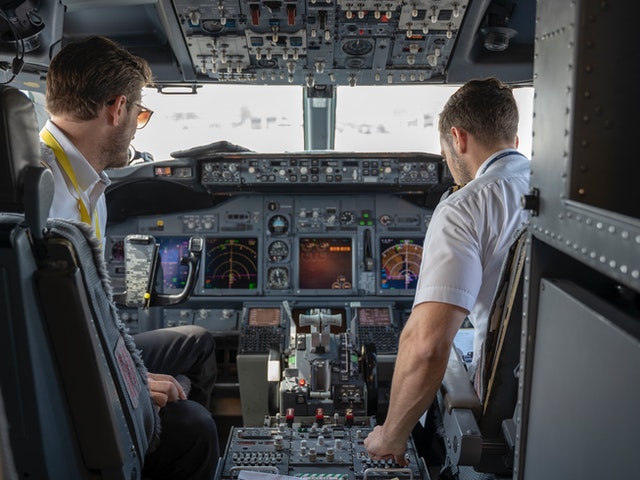
If you loved watching airplanes take off and land, the scene around airports, or enjoy the engineering or mechanical side of aircraft, an aviation career may be for you. Before deciding on a career in aviation, five things to know when starting your career in aviation are below. These five items will help you make an educated decision before getting into aviation.
What Is A Career In Aviation?
While many think of pilot when they hear aviation, there are lots of positions available in the aviation industry. Besides the pilot, some of the most popular jobs and careers include:
- Aircraft Manufacturing
- Aircraft Technician or Electrical Installer
- Airport Operations Manager
- Flight Attendants
- Air Traffic Controller
- Quality Control Personnel
Some things you should know about starting a career in aviation include:
1. You’ll Have To Hit The Books
Regardless of what aviation career you are interested in, you must hit the books and study to succeed. Of course, a career as a pilot is one of the most extensive educational programs among aviation careers. Many colleges have aviation degrees for those interested in a career as a pilot.
For many careers in aviation, the Federal Aviation Administration (FAA) regulates how much study and training is required. For instance, to be an air traffic control worker, after candidates get a formal education from an air traffic training approved school, they receive 12 weeks of training at the FAA Academy.
2. Physical Fitness Is Mandatory
There are a lot of changes that happen to the human body when it is not on the ground. While being physically fit won’t make a person the best pilot, pilots have physical fitness requirements. Other physical fitness requirements for pilots are:
- Blood pressure: the average blood pressure of a pilot should not exceed 155 over 95.
- Height and weight: a candidate’s body mass index gets calculated. Those extremely short or obese have limitations that hinder their pilot certification.
- Vision & hearing: long and short distance is tested. Hearing evaluates the ability to hear a conversation from an average distance.
- Mental and neurological: after a full medical history, including any alcohol or drug abuse, the examiner either grants certification or requests additional testing or more information.
3. Salary Expectations
One of the most impressive reasons for entering the aviation field is that it is a field that will continue to thrive. Those entering can expect great salaries and expect for salaries to grow. The five highest paying jobs in aviation and their average salaries are listed below.
- Director of Aerospace Program Management – $163,827 to $203,780
- Pilot and Co-pilot – $163,827 to $203,780, $88,791 to $116,832 (co-pilot)
- Aerospace Project Engineer – $89,075 to $112,895
- Airline Maintenance Manager – $107,148 to $139,953
- Airplane Mechanic – $82,240 to $123,893
4. Have Solid Soft Skills
The aviation industry’s value of solid soft skills cannot get overstated. Most are positions of authority and leadership, even those working behind the scenes. Having stable leadership traits will encourage those who work with aviation employees. Leadership and other soft skills show confidence and will contribute to the productivity of those working with the leader.
Besides displaying leadership through communications, leaders also show their love of aviation with supplies, tee-shirts, gifts, and miniature models of their favorite aircraft. They can be purchased at the pilot shop and help those in aviation show off all their hard work.
5. Environmental Factors
Conditions inside and outside the airport create a lot of stress for aviation workers, and many environmental factors affect aviation workers’ productivity. Some of the environmental factors that affect workers include:
- Not getting enough sleep
- High temperatures
- Loud noises
Conclusion
As you have read, an aviation career may be for those who love watching airplanes take off and land, love the scene around airports, or enjoy planes’ engineering or mechanical side. For those people, five things to know when starting a career in aviation are above. These five items will help a potential candidate make an educated decision before getting into aviation.
